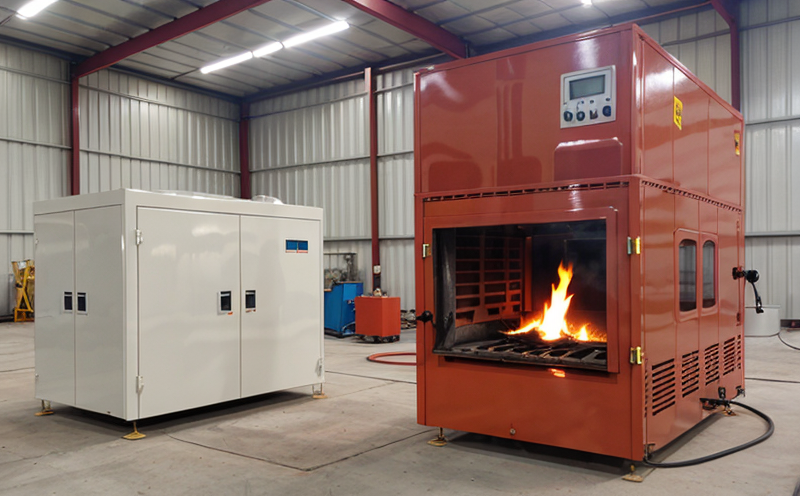ASTM E1461 Thermal Diffusivity of Composites
The ASTM E1461 standard provides a precise method to measure the thermal diffusivity of composite materials. This property is crucial for understanding how heat propagates through these materials, which in turn influences their performance in various applications such as electronics, aerospace, and automotive sectors.
Thermal diffusivity (α) quantifies the ability of a material to conduct heat relative to its capacity to store thermal energy. It is calculated using the formula:
\[ \alpha = \frac{k}{\rho c_p} \] where k is the thermal conductivity, ρ is the density, and c_p is the specific heat capacity of the material. This property is particularly important for composite materials due to their heterogeneous nature, which often results in non-uniform thermal properties.The ASTM E1461 test method employs a transient plane source (TPS) technique to determine thermal diffusivity directly from time-temperature data obtained during heating and cooling cycles. The TPS is a small heater and sensor embedded within the composite sample, which allows for accurate measurement of heat flow under controlled conditions.
Material preparation involves cutting samples into standard sizes and shapes as per ASTM E1461 guidelines to ensure consistent testing results. Proper specimen preparation ensures that the test reflects the intrinsic properties of the material rather than surface effects or geometric inconsistencies.
The instrumentation used in this test includes a thermal conductivity analyzer equipped with TPS sensors, capable of precise temperature control and data acquisition. This equipment is essential for obtaining reliable thermal diffusivity measurements over a range of temperatures relevant to the composite’s operating environment.
Results from ASTM E1461 are typically reported as an average thermal diffusivity value across multiple test points within the sample. These results can be used to validate material specifications, optimize design parameters, and ensure compliance with industry standards.
In real-world applications, accurate knowledge of thermal diffusivity helps in optimizing heat management strategies for composites used in high-performance systems where temperature regulation is critical. For example, in aerospace components, understanding the thermal diffusivity can prevent overheating issues that could compromise structural integrity or operational efficiency.
Thermal diffusivity testing under ASTM E1461 also aids in selecting appropriate adhesives and bonding agents for composites used in structural applications. The compatibility of these materials with the composite’s thermal characteristics is essential to ensure long-term performance and durability.
Applied Standards
| Standard | Description |
|---|---|
| ASTM E1461-18 | Standard Test Method for Thermal Diffusivity of Composites Using the Transient Plane Source Technique. |
| ISO 20392:2017 | Guide to the Use of the Transient Plane Source (TPS) Technique for Measuring Thermal Properties. |
Scope and Methodology
The ASTM E1461 standard defines a procedure for determining the thermal diffusivity of composite materials using the transient plane source (TPS) method. This test is applicable to various types of composites, including those used in aerospace, automotive, and electronics industries.
The scope includes:
- Composite materials with a homogeneous distribution of thermally conductive particles or fibers.
- Multilayered composite structures where thermal diffusivity varies across layers.
The methodology involves the following steps:
- Selecting standard specimens according to ASTM E1461 specifications.
- Calibrating the TPS equipment using reference materials.
- Measuring temperature changes at multiple points within the composite sample during heating and cooling cycles.
- Analyzing data to calculate thermal diffusivity using appropriate formulas.
This method ensures accurate measurement of thermal diffusivity, providing valuable insights into material performance under different temperature conditions.
Why Choose This Test
- Precise determination of thermal diffusivity for composite materials.
- Compliance with international standards (ASTM E1461).
- Affordance for detailed analysis across various temperatures and sample types.
- Valuable data for optimizing material performance in high-demand applications.
The ASTM E1461 test is essential for quality control, product development, and regulatory compliance. It provides critical information about how heat will behave within composite structures, enabling engineers to design more efficient and reliable products.





